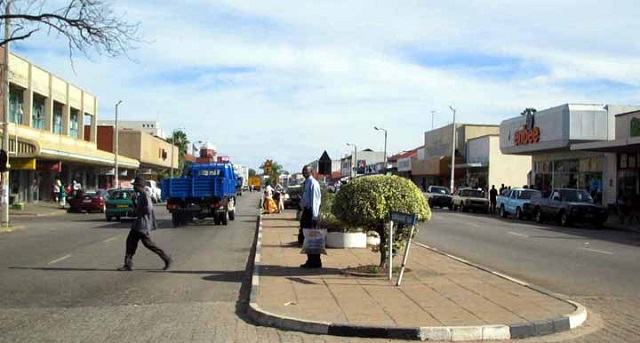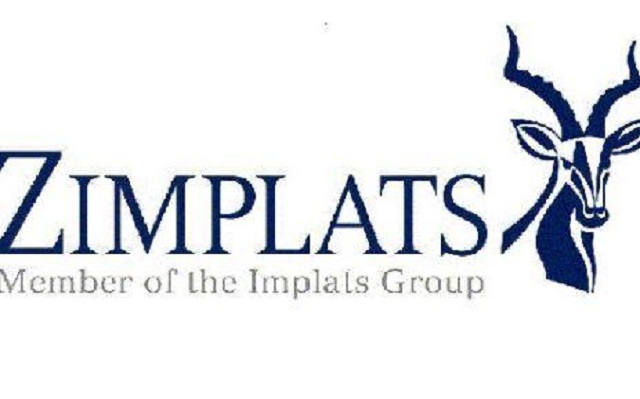Protect infrastructure from illegal miners

Saul Gwakuba Ndlovu
Two very disturbing news items were published by some of Zimbabwe’s print media last week.
They were both about the damage caused to the country’s physical environment by what were referred to by the media as illegal miners, gold – diggers to be exact.
One was about such damage having been caused in some parts of Manicaland Province, and the other said that the Kwekwe District Administrator had been ordered to vacate his office urgently because it was feared that an under – ground tunnel dug by some illegal gold – miners had more or less reached the ground on which the DA’s offices are built.
We shall focus on the Kwekwe story because it has a greater potential of causing disaster since Kwekwe is an urban centre and is thus more densely populated than the rural Manicaland Province.
Illegal gold – mining has been going on around Kwekwe and other Midlands towns for well more than 20 years. Tunnels have encroached on the Bulawayo – Harare railway line, and also on the Bulawayo – Harare highway near Kwekwe.
Appropriate national authorities have not taken steps to arrest those responsible nor have they mounted a public campaign to sensitize the nation about the inevitable dangers associated with illegal gold – digging.
After every little while we read in the media stories about illegal miners killed in disused mine shafts in various areas of Zimbabwe, as well as in South Africa.
Law enforcement authorities give the unfortunate impression that illegal mining is a mere nuisance and not a serious crime. They do not seem to realise that the practice, which is now widespread, can result in major national disasters such as the collapsing entire blocks of structures or even of residential houses.
Let us take the Kwekwe case as an example. In any given urban environment there are six stakeholders whose interests are affected by such mining development.
The stakeholders are the local councils, the national police force, the ministry of mines, the ministry of environment, the industrial and commercial enterprises, and the residents.
Local councils legally own the land on which towns or cities stand. That land is properly demarcated so that every local council knows where its responsibilities and authority begin and where they end in areal terms as well as in terms of time, that is to say for how long the particular councils are in office.
The national police have the responsibility and authority to enforce the law wherever, whenever, however and against whomever it is lawful to do so. This is fundamental to the efficient administration of any national law.
The ministry of mines has the important responsibility to ensure that Zimbabwe’s mineral resources are lawfully exploited. That means, in other words , that the resources are mined at legally recognized places, and are marketed through lawful channels.
The ministry in charge of the environment monitors, inter alia, the way people in Zimbabwe utilize and treat the land and other natural resources such as trees, rocks, birds and other types of wildlife that include various antelopes, fish, carnivores, amphibians and reptiles such as pythons.
Representatives of commerce and industry ensure that their investments and assets are safe in or at whatever place they are. Assets include buildings.
Investors would take a very critical, if not hostile, posture against factors leading to the destruction of their infrastructure because of illegal mining.
Residents comprise people and it is among them that we find illegal miners, and it is among them that much campaigning is necessary to show that the interests of a community are more important than those of an individual or those of a few individuals.
Residents of urban centres such as Kwekwe should be helped to appreciate that towns depend more on commercial and legally run industrial concerns than on haphazardly operated undertakings like illegally digging gold. Kwekwe can exist without such illegal gold digging, but cannot without its well known commercial enterprises.
If illegal gold-diggers would cause a factory or a road, a railway line or a recreation hall to collapse, the law needs must take its full course. A factory can employ scores of people many more than illegal gold-digging; a school caters for literally hundreds of lives, so does a hospital, and it is national or public funds that erect those institutions. It is thus clear which of these undertakings the ministries of mines and of environment plus the police should protect in the Kwekwe situation.
The Kwekwe city council has a very, very important question to answer in connection with this most unfortunate development. It is: Why did it not take stern legal measures against the illegal gold diggers in the very early stages of their operations?
That council surely knows the boundaries of its land, and it has personnel who keep an active eye on that land every day.
Kwekwe residents and businesses expect the council to protect their infrastructure from unscrupulous people without any fear or favour whatsoever. The Kwekwe municipal police must explain why the town is now sitting on a maze of tunnels.
Should an investigation be carried out, and a culprit or culprits be identified, the law must take its course without let or hindrance.
If Kwekwe city council is unable to deal effectively with this matter, the Environment Management Agency (EMA) should take it up, leading to the prosecution of those responsible for the serious damage to that town’s physical environment.
Zimbabweans have to understand that national freedom does not mean or imply that we have the right to behave anyhow, anywhere, any time. We have to respect the law, or change it to promote and protect our needs.
Saul Gwakuba Ndlovu is a retired, Bulawayo – based journalist. He can be contacted on cell 0734 328 136 or through email. [email protected]












Comments